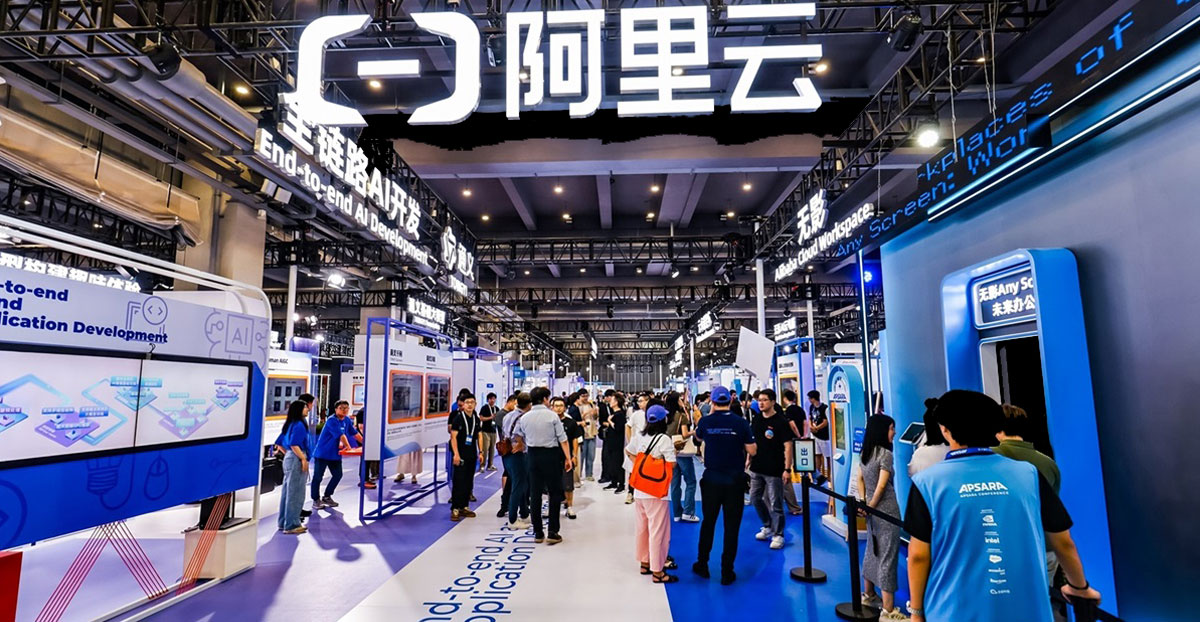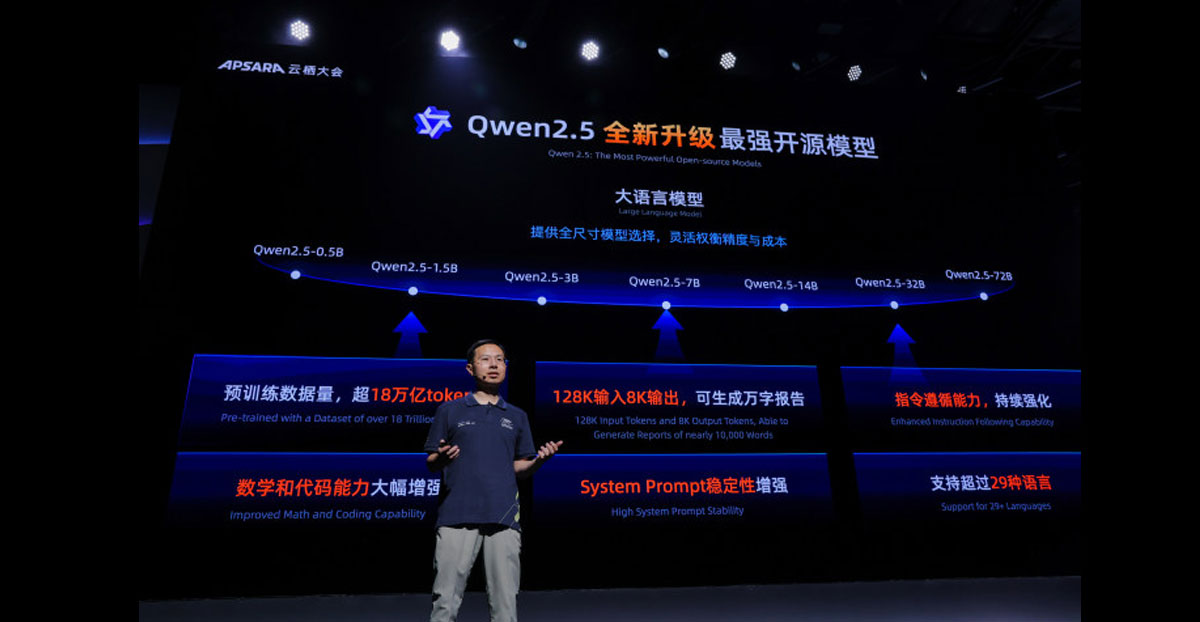คนไทยยังตั้งเป้าซื้อบ้านใน 1 ปีข้างหน้า แม้สภาพเศรษฐกิจยังท้าทาย ตั้งความหวังมาตรการฯ รัฐแรงพอจุดไฟให้ตลาดอสังหาฯ กลับมาคึกคัก
แม้ภาครัฐจะขยายมาตรการกระตุ้นเศรษฐกิจผ่านหน่วยงานในการกำกับของรัฐฯ แต่ก็ไม่เพียงพอที่จะฟื้นความเชื่อมั่นของผู้บริโภคให้กลับมาได้เร็วอย่างที่คาด ผลสำรวจดัชนีความเชื่อมั่นของผู้บริโภคในเดือนสิงหาคม 2567 ของศูนย์พยากรณ์เศรษฐกิจและธุรกิจ มหาวิทยาลัยหอการค้าไทย พบว่าดัชนีความเชื่อมั่นของผู้บริโภคปรับตัวลดลงต่อเนื่องเป็นเดือนที่ 6 และอยู่ในระดับต่ำสุดในรอบ 13 เดือนนับตั้งแต่เดือนสิงหาคม 2566 เป็นต้นมา เนื่องจากผู้บริโภคมีความกังวลเกี่ยวกับภาวะเศรษฐกิจไทยที่ยังคงชะลอตัวลงและฟื้นตัวช้า ซึ่งล้วนส่งผลกระทบต่อเนื่องมายังการเติบโตของหลายธุรกิจรวมทั้งตลาดอสังหาริมทรัพย์ที่ต่างชะลอตัวตามไปด้วยเช่นกัน
ข้อมูลจากแบบสอบถามความคิดเห็นของผู้บริโภคที่มีต่อตลาดที่อยู่อาศัย DDproperty Thailand Consumer Sentiment Study รอบล่าสุดของดีดีพร็อพเพอร์ตี้ (DDproperty) แพลตฟอร์มอสังหาริมทรัพย์อันดับ 1 ของไทย พบว่าภาพรวมความเชื่อมั่นด้านอสังหาริมทรัพย์ของผู้บริโภคชาวไทยยังคงอยู่ในสถานการณ์ที่ต้องจับตามองอย่างใกล้ชิด โดยดัชนีความเชื่อมั่นด้านอสังหาริมทรัพย์ยังคงทรงตัวอยู่ที่ 48% ขณะที่ความพึงพอใจในสภาพตลาดที่อยู่อาศัยยังคงทรงตัวอยู่ที่ 63% เช่นกัน สะท้อนให้เห็นว่ามาตรการกระตุ้นเศรษฐกิจผ่านภาคอสังหาริมทรัพย์ที่ออกมาเพิ่มเติมในเดือนเมษายน 2567 นี้ ยังไม่สามารถปลุกให้ตลาดอสังหาฯ กลับมาคึกคักได้ตามที่หลายฝ่ายคาดหวัง
อย่างไรก็ดี ความสามารถในการซื้อที่อยู่อาศัยของผู้บริโภคปรับเพิ่มขึ้นมาอยู่ที่ 61% (จากเดิม 59% ในรอบก่อน) สะท้อนให้เห็นว่าผู้บริโภคมีการวางแผนทางการเงินมากขึ้น หลังจากเผชิญความท้าทายทางเศรษฐกิจมาเป็นเวลานาน ทำให้ผู้ที่จำเป็นต้องซื้อบ้านในเวลานี้เรียนรู้ที่จะปรับแผนการใช้จ่ายและสร้างวินัยทางการเงินให้พร้อมยิ่งขึ้นก่อนที่จะเป็นเจ้าของที่อยู่อาศัย
ประกอบกับการที่คณะกรรมการนโยบายการเงิน (กนง.) มีมติคงอัตราดอกเบี้ยนโยบายอย่างต่อเนื่องจึงกลายเป็นความท้าทายที่ส่งผลต่อสภาพคล่องทางการเงินของผู้ที่วางแผนซื้อบ้านเช่นกัน โดยผู้บริโภคส่วนใหญ่มองว่าอัตราดอกเบี้ยของสินเชื่อที่อยู่อาศัยปัจจุบันอยู่ในระดับสูง (49%) และสูงมาก (28%) มีเพียง 16% เท่านั้นที่มองว่าอัตราดอกเบี้ยเหมาะสมแล้ว นอกจากนี้สัดส่วนของผู้บริโภคที่มองว่ารัฐบาลมีความพยายามเพียงพอที่จะช่วยให้ซื้อที่อยู่อาศัยเป็นของตัวเองได้ยังทรงตัวอยู่ที่ 13% เช่นกัน สะท้อนให้เห็นว่ามาตรการกระตุ้นอสังหาฯ ที่ออกมาเพิ่มเติมในปีนี้อาจจะยังไม่ตอบโจทย์และช่วยแบ่งเบาภาระของคนซื้อบ้านได้มากเท่าที่ควร
จับตาดีมานด์ที่อยู่อาศัย คนอยากซื้อบ้านมากขึ้นก่อนสิ้นสุดมาตรการรัฐ
ข้อมูลจากแบบสอบถามฯ DDproperty Thailand Consumer Sentiment Study รอบล่าสุด พบว่าครึ่งหนึ่งของผู้ตอบแบบสอบถามฯ (50%) วางแผนจะซื้อที่อยู่อาศัยในอีก 1 ปีข้างหน้า โดยเพิ่มขึ้นจากรอบก่อนหน้าที่เป็น 44% นับเป็นสัญญาณบวกสะท้อนให้เห็นว่าผู้บริโภคยังต้องการซื้อบ้าน/คอนโดมิเนียมในระยะเวลาอันใกล้ก่อนที่มาตรการลดค่าจดทะเบียนโอนและลดค่าจดทะเบียนการจำนองอสังหาฯ จะสิ้นสุดในวันที่ 31 ธันวาคม 2567 นี้ ด้านสัดส่วนของผู้เลือกเช่าที่อยู่อาศัยลดลงมาอยู่ที่ 10% (จากเดิม 14%) ขณะที่ผู้บริโภค 7% วางแผนจะรับมรดกที่อยู่อาศัยจากพ่อแม่และผ่อนชำระต่อ ส่วนอีก 32% ยังคงไม่มีการวางแผนซื้อหรือเช่าที่อยู่อาศัยใด ๆ ในเวลานี้
- “อยากได้พื้นที่ส่วนตัว” โจทย์ใหญ่ดันคนซื้อบ้าน ในกลุ่มผู้บริโภคที่อยากซื้อที่อยู่อาศัย เกือบครึ่ง (47%) ตัดสินใจซื้อเนื่องจากต้องการพื้นที่ส่วนตัวที่มากขึ้น รองลงมาคือซื้อเพื่อเพิ่มพื้นที่สำหรับพ่อแม่/บุตรหลานเมื่อขยายครอบครัว 31% จะเห็นว่าสองอันดับแรกจะให้ความสำคัญไปที่การซื้อเพื่อตอบโจทย์ผู้อยู่อาศัยเป็นหลัก ตามมาด้วยซื้อเพื่อการลงทุนในสัดส่วนไล่เลี่ยกันที่ 30% เนื่องจากการลงทุนในอสังหาฯ ถือเป็นการลงทุนที่ได้ผลตอบแทนที่น่าสนใจ และมีดีมานด์ในตลาดอย่างต่อเนื่อง
เมื่อพิจารณาความพร้อมทางการเงินพบว่าผู้วางแผนซื้อบ้านส่วนใหญ่ให้ความสำคัญกับการวางแผนการเงินมากขึ้น โดย 1 ใน 3 ของผู้ที่วางแผนซื้อที่อยู่อาศัย (33%) เผยว่ามีเงินออมเพียงพอที่จะซื้อที่อยู่อาศัยเป็นของตัวเองแล้ว ขณะที่เกือบครึ่ง (48%) สามารถเก็บเงินเพื่อซื้อที่อยู่อาศัยได้ครึ่งทางแล้ว สะท้อนให้เห็นถึงการเตรียมความพร้อมก่อนซื้อที่อาศัยในช่วงที่สภาพเศรษฐกิจชะลอตัว คนหาบ้านจึงต้องปรับตัวเพื่อสร้างความมั่นคงทางการเงินด้วยตนเองก่อน โดยมีเพียง 18% เท่านั้นที่ยังไม่ได้เริ่มต้นเก็บเงินใด ๆ
- “เงินเก็บสวนทางราคาบ้าน” ทำคนเลือกเช่า ในขณะเดียวกันเหตุผลสำคัญที่ทำให้ผู้บริโภคเลือกเช่าที่อยู่อาศัยแทนการซื้อ ส่วนใหญ่มาจากปัจจัยการเงินเป็นหลัก โดยมากกว่าครึ่ง (56%) เผยว่ามีเงินเก็บไม่พอที่จะซื้อที่อยู่อาศัย ขณะที่ราคาบ้านที่สูงเกินไปทำให้เกือบ 2 ใน 5 (37%) ขอเลือกออมเงินแทน และ 36% มองไม่เห็นความจำเป็น/ความเร่งด่วนที่ต้องซื้อที่อยู่อาศัยในเวลานี้ สะท้อนให้เห็นว่าผู้เช่าส่วนใหญ่ยังคงกังวลเกี่ยวกับการบริหารสภาพคล่องทางการเงินในยุคที่แนวโน้มเศรษฐกิจมีความไม่แน่นอนสูง จึงลดความเสี่ยงโดยหลีกเลี่ยงการซื้อที่อยู่อาศัย และหันมาเลือกเช่าซึ่งตอบโจทย์ทางการเงินและลดภาระค่าใช้จ่ายได้ดีกว่า
ปัจจุบันมุมมองการเป็นเจ้าของที่อาศัยของคนรุ่นใหม่เปลี่ยนไปตามเทรนด์ Generation Rent ซึ่งตอบโจทย์การใช้ชีวิตและไม่สร้างภาระทางการเงินในระยะยาวจากการซื้อที่อยู่อาศัย รวมทั้งมีความคล่องตัวมากกว่าหากต้องการโยกย้ายในอนาคต โดยผู้เช่าเกือบ 2 ใน 5 (39%) เผยว่าได้วางแผนเช่า 2 ปีก่อนจะซื้อที่อยู่อาศัยในภายหลัง ส่วน 29% มีความไม่แน่ใจว่าจะเช่าอีกนานแค่ไหน เนื่องจากยังต้องพิจารณาปัจจัยความพร้อมด้านอื่น ๆ อีกครั้ง ขณะที่ 5% เผยว่าตั้งใจจะเช่าอยู่ตลอดชีวิต
สำหรับอัตราค่าเช่าที่ได้รับความสนใจมากที่สุดในหมู่ผู้เช่าอยู่ในช่วงไม่เกิน 5,000 บาท/เดือน สัดส่วน 46% สะท้อนให้เห็นถึงเทรนด์การมองหาที่อยู่อาศัยให้เช่าที่มีราคาย่อมเยา ตอบโจทย์สถานะทางการเงินในยุคปัจจุบันเป็นหลัก รองลงมาคือ 5,001-10,000 บาท/เดือน และ 10,001-15,000 บาท/เดือน (สัดส่วน 32% และ 9% ตามลำดับ)
อัปเดตเทรนด์คนหาบ้าน ต่อจิ๊กซอว์บ้านในฝันยุค 2024
- “ขนาด-ทำเล” หัวใจสำคัญเมื่อเลือกซื้อบ้าน ปัจจัยภายในที่มีผลต่อการตัดสินใจเลือกซื้อหรือเช่าที่อยู่อาศัยของผู้บริโภค กว่า 2 ใน 5 (43%) ให้ความสำคัญกับขนาดที่อยู่อาศัยเป็นอันดับแรก โดยบ้าน/คอนโดฯ ในฝันต้องมีพื้นที่ใช้สอยเพียงพอที่จะตอบโจทย์การอยู่อาศัยและไลฟ์สไตล์การใช้ชีวิตของสมาชิกในครอบครัว รองลงมาคือพิจารณาราคาเฉลี่ยต่อพื้นที่ใช้สอยในสัดส่วนไล่เลี่ยกันที่ 42% สะท้อนให้เห็นว่าความคุ้มค่ายังคงเป็นปัจจัยสำคัญที่ดึงดูดใจให้เกิดการตัดสินใจซื้อ ตามมาด้วยสิ่งอำนวยความสะดวกภายในที่พัก 37%
สำหรับปัจจัยภายนอกโครงการที่มีผลต่อการตัดสินใจเลือกซื้อ/เช่าที่อยู่อาศัย พบว่าผู้บริโภคเกือบครึ่ง (48%) พิจารณาจากทำเลที่ตั้งของโครงการมาเป็นอันดับแรก โดยให้ความสำคัญกับการเลือกโครงการที่ตั้งอยู่ในทำเลที่มีศักยภาพในการเติบโตหรืออยู่ในทำเลที่ภาครัฐมีแผนพัฒนาระบบสาธารณูปโภคและเมกะโปรเจกต์ในอนาคต ซึ่งจะช่วยเพิ่มมูลค่าของที่อยู่อาศัยตามไปด้วย รองลงมาคือโครงการที่เดินทางได้สะดวกด้วยระบบขนส่งสาธารณะ และพิจารณาจากความปลอดภัยของโครงการ ในสัดส่วนเท่ากันที่ 44% ซึ่งล้วนเป็นปัจจัยสำคัญที่เสริมสร้างความเป็นอยู่ที่ดีในระยะยาวทั้งสิ้น
- “คุณภาพงานตกแต่งภายใน” ดึงดูดใจให้เลือกดีเวลลอปเปอร์ ปัจจัยสำคัญที่ผู้บริโภคพิจารณาเมื่อเลือกผู้พัฒนาอสังหาริมทรัพย์นั้น มากกว่าครึ่ง (53%) ให้ความสำคัญกับคุณภาพของการตกแต่งภายในของโครงการมากที่สุด เนื่องจากเป็นอีกหนึ่งปัจจัยที่สะท้อนคุณภาพของสินค้าโดยตรง และผู้บริโภคยังสามารถประเมินความคุ้มค่าจากคุณภาพงานเทียบกับราคาขายในเบื้องต้นได้ รองลงมาคือพิจารณาจากผลงานที่ผ่านมาของผู้พัฒนาอสังหาฯ และข้อเสนอทางการเงินต่าง ๆ ส่วนลด หรือเงินคืน ในสัดส่วนเท่ากันที่ 50% ซึ่งจะช่วยแบ่งเบาค่าใช้จ่ายเมื่อซื้อบ้านใหม่ได้ไม่น้อย โดยที่ผู้บริโภคยังสามารถนำเงินส่วนนี้ไปใช้เป็นงบตกแต่งบ้านได้
- เทรนด์ Pet Parent มาแรง 78% สนใจโครงการเลี้ยงสัตว์ได้ ผลสำรวจของวิทยาลัยการจัดการ มหาวิทยาลัยมหิดล (CMMU) เผยว่าคนไทยต้องการเลี้ยงสัตว์เพื่อเป็นลูก (Pet Parent) มากถึง 49% สะท้อนให้เห็นถึงการเติบโตของตลาดสัตว์เลี้ยงและโอกาสในการเจาะกลุ่มเป้าหมายนี้ในหลากหลายธุรกิจรวมทั้งตลาดที่อยู่อาศัยเช่นกัน สอดคล้องกับข้อมูลจากแบบสอบถามฯ DDproperty Thailand Consumer Sentiment Study ที่พบว่า ผู้บริโภคกว่า 3 ใน 4 (78%) เผยว่าสนใจโครงการที่เลี้ยงสัตว์ได้ หรือ Pet-Friendly โดยกว่า 2 ใน 3 (67%) ของกลุ่มผู้ที่สนใจนั้นคาดหวังว่าในโครงการเหล่านี้จะมีการแยกโซนระหว่างผู้ที่เลี้ยงสัตว์และไม่ได้เลี้ยงภายในอาคารอย่างชัดเจน รองลงมาคือมีสิ่งอำนวยความสะดวกสำหรับสัตว์เลี้ยง เช่น สวน สระว่ายน้ำ ระบบระบายอากาศ ฯลฯ ในสัดส่วนไล่เลี่ยกันที่ 66% และมีการออกแบบเพื่อรองรับการอยู่อาศัยของสัตว์เลี้ยง เช่น มาพร้อมระบบระบายอากาศภายในห้อง ระเบียงเสริมความปลอดภัยป้องกันการปีนป่าย 60%
- ฝุ่น PM 2.5 ยังไม่จาง คนไทยมองหาบ้านที่ช่วยจบปัญหา ปัญหาฝุ่น PM 2.5 ยังคงเป็นความกังวลของคนหาบ้าน เนื่องจากความเสี่ยงนี้กระทบต่อสุขภาพอย่างเลี่ยงไม่ได้ โดยผู้บริโภคถึง 61% เลือกพิจารณาเฉพาะโครงการที่มีเครื่องปรับอากาศและระบายอากาศได้ดีเท่านั้น เพื่อช่วยบรรเทาความรุนแรงของฝุ่น PM 2.5 รองลงมา 53% เผยว่าจะทบทวนแผนการซื้อที่อยู่อาศัยในพื้นที่เสี่ยงอีกครั้ง ขณะที่ 37% จะพิจารณาการเลือกซื้อบ้าน/คอนโดฯ ที่มีฟังก์ชั่นหรือคุณสมบัติที่ช่วยแก้ไขปัญหานี้ได้
- “ได้บ้านไม่ตรงปก” ความกังวลอันดับ 1 ของคนซื้อบ้าน การซื้อที่อยู่อาศัยถือเป็นการตัดสินใจที่ยิ่งใหญ่และมาพร้อมความท้าทาย เนื่องจากหากซื้อแล้วเกิดปัญหา ผู้ซื้อไม่สามารถเปลี่ยนได้ง่ายดายเหมือนการซื้อสินค้าทั่วไป เห็นได้ชัดจากความกังวลของผู้บริโภคที่ซื้อ ขาย หรือเช่าที่อยู่อาศัยนั้น พบว่ากว่า 3 ใน 5 (61%) มีความกังวลว่าคุณภาพของที่อยู่อาศัยที่ได้จะไม่ตรงตามที่โฆษณาไว้มากที่สุด โดยมีสัดส่วนที่สูงขึ้นในกลุ่มผู้ที่มีรายได้ปานกลางและสูง รองลงมาคือ กังวลว่าแผนการผ่อนชำระอาจได้รับผลกระทบจากอัตราดอกเบี้ยที่ผันผวนหรือเพิ่มขึ้นในอนาคต 51% ซึ่งอาจทำให้เกิดปัญหาทางการเงินตามมาได้ ขณะที่อีก 42% กังวลว่าโครงการที่ซื้อไปแล้วจะมีข้อพิพาทกับหน่วยงานต่าง ๆ ส่งผลให้ไม่สามารถขาย โอนกรรมสิทธิ์ หรือปล่อยเช่าได้
กลุ่มมิลเลนเนียลและ Gen Z พร้อมซื้อบ้านมากแค่ไหนในเวลานี้
ผู้บริโภคกลุ่มมิลเลนเนียล (Millennials) หรือ Gen Y และ Gen Z เป็นวัยที่เริ่มต้นสร้างครอบครัวและเริ่มวางแผนซื้อที่อยู่อาศัยจึงมีความสำคัญต่อภาคอสังหาฯ อย่างไรก็ดีมีผู้บริโภคเพียง 37% เท่านั้นที่มีแผนย้ายออกจากบ้านพ่อแม่ภายใน 1 ปีข้างหน้า ขณะที่กว่า 3 ใน 5 (63%) เผยว่ายังไม่มีแผนย้ายออกเร็ว ๆ นี้ โดยให้เหตุผลว่าต้องการดูแลพ่อแม่อย่างใกล้ชิด 43% รองลงมาคือตั้งใจรับช่วงต่อบ้านของพ่อแม่ 28% และไม่มีเงินเก็บเพียงพอในการซื้อหรือเช่าที่อยู่อาศัยของตัวเองในเวลานี้ 27% สะท้อนให้เห็นถึงความท้าทายทางการเงินที่ทำให้คนรุ่นใหม่ไม่มีกำลังซื้อเพียงพอที่จะเป็นเจ้าของที่อยู่อาศัย ซึ่งเป็นปัจจัย 4 ที่สำคัญของมนุษย์
แม้ความท้าทายจากสภาพเศรษฐกิจจะส่งผลกระทบต่อแผนการซื้อบ้าน/คอนโดฯ ของคนรุ่นใหม่ แต่ความต้องการซื้อนั้นยังคงมีอยู่ โดยกลุ่มมิลเลนเนียล (Millennials) และ Gen Z เผยว่าหากต้องเลือกระหว่างการซื้อหรือเช่าที่อยู่อาศัย ส่วนใหญ่ต้องการซื้อมากถึง 82% มีเพียง 18% เท่านั้นที่สนใจเช่า
ทั้งนี้ในช่วง 1 ปีข้างหน้า ผู้บริโภคกลุ่มมิลเลนเนียล (Millennials) และ Gen Z วางแผนการเงินไปกับการใช้จ่ายภายในครอบครัวมากถึง 56% รองลงมาคือเก็บเงินไว้เป็นกองทุนเงินสำรองฉุกเฉิน 54% เพื่อรับมือสถานการณ์ที่ไม่แน่นอนในอนาคต และเก็บเงินไว้เพื่อเคลียร์หนี้ต่าง ๆ ให้หมด 27% โดยมีเพียง 21% เท่านั้นที่วางแผนออมเงินไว้เพื่อซื้อที่อยู่อาศัย สอดคล้องกับข้อมูลจากรายงานภาวะสังคมไทยไตรมาสหนึ่ง ปี 2567 ของสภาพัฒนาการเศรษฐกิจและสังคมแห่งชาติ (สศช.) เผยว่า สถานการณ์สังคมสูงวัยที่เพิ่มขึ้นสวนทางกับวัยแรงงานที่ลดลงในไทย ส่งผลให้ “แซนด์วิช เจเนอเรชัน (Sandwich Generation)” หรือคนที่อยู่ตรงกลางที่ต้องดูแลทั้งพ่อแม่สูงอายุและลูกของตนเอง มีภาระที่ต้องรับผิดชอบมากขึ้นและมีแนวโน้มที่จะเผชิญปัญหาทางการเงิน ประกอบกับภาวะเศรษฐกิจที่เปราะบางกลายเป็นความท้าทายให้คนรุ่นใหม่สร้างเนื้อสร้างตัวได้ยากกว่าสมัยก่อน การเป็นเจ้าของที่อยู่อาศัยจึงอาจไม่ใช่สิ่งที่คนรุ่นใหม่ให้ความสำคัญเป็นอันดับต้น ๆ อีกต่อไป
หวังพึ่งมาตรการภาครัฐ กลไกผลักดันให้เป็นเจ้าของที่อยู่อาศัยได้ง่ายขึ้น
ปฏิเสธไม่ได้ว่าความท้าทายจากเศรษฐกิจที่ชะลอตัวเป็นเวลายาวนานและอัตราดอกเบี้ยที่ทรงตัวอยู่ในระดับสูงได้กลายมาเป็นความท้าทายสำคัญที่ทำให้ตลาดอสังหาฯ ไม่ได้เติบโตตามที่คาดการณ์ไว้ และกระทบต่อผู้ที่วางแผนซื้อบ้าน/คอนโดฯ อย่างเลี่ยงไม่ได้ เห็นได้จาก 1 ใน 3 ของผู้บริโภค (33%) เผยว่าจะชะลอการซื้อที่อยู่อาศัยออกไปก่อนเนื่องจากเงินเก็บได้รับผลกระทบจากเศรษฐกิจ รองลงมาคือวางแผนจะซื้อที่อยู่อาศัยที่มีราคาถูกกว่าแทน และไม่มีแผนจะซื้อที่อยู่อาศัยในอนาคตอันใกล้ ในสัดส่วนเท่ากันที่ 22% เพื่อเป็นการลดการสร้างภาระหนี้ที่ไม่จำเป็นในช่วงนี้ออกไปก่อน
นอกจากนี้ สภาพคล่องทางการเงินยังเป็นอีกหนึ่งอุปสรรคที่ทำให้การมีบ้านในฝันไม่ใช่เรื่องง่าย มากกว่าครึ่งของผู้บริโภค (56%) เผยว่าอุปสรรคสำคัญในการขอสินเชื่อที่อยู่อาศัยมาจากรายได้และอาชีพที่ไม่มั่นคง รองลงมาคือมีประวัติทางการเงินที่ไม่ดี 41% และมีสัดส่วนภาระหนี้ต่อรายได้ (Debt Service Ratio: DSR) ไม่เอื้ออำนวย 30% จะเห็นได้ว่าอุปสรรคสำคัญ 3 อันดับแรกล้วนเป็นผลกระทบต่อสภาพคล่องทางการเงินของผู้บริโภค ที่มีผลโดยตรงต่อการพิจารณาอนุมัติสินเชื่อของธนาคารทั้งสิ้น ทำให้อัตราการปฏิเสธสินเชื่อ (Rejection Rate) เพิ่มขึ้นอย่างต่อเนื่อง สอดคล้องกับข้อมูลของธนาคารแห่งประเทศไทย (ธปท.) ที่เผยว่าอัตราการปฏิเสธสินเชื่อเพิ่มขึ้นในกลุ่มคนรายได้มากกว่า 30,000 บาทต่อเดือน จากเดิมที่เป็นกลุ่มรายได้ต่ำกว่า 30,000 บาท
ทั้งนี้ หลายฝ่ายยังคงคาดหวังปัจจัยบวกจากมาตรการจากภาครัฐที่จะเข้ามาช่วยกระตุ้นการเติบโตในตลาดอสังหาฯ ควบคู่ไปกับการกระตุ้นเศรษฐกิจ โดยมาตรการกระตุ้นภาคอสังหาฯ จากภาครัฐที่ผู้บริโภคต้องการมากที่สุดในเวลานี้ 3 ใน 5 (60%) ต้องการให้มีมาตรการช่วยลดอัตราดอกเบี้ยสินเชื่อที่อยู่อาศัยมากขึ้น รองลงมาคือมาตรการลดดอกเบี้ยสินเชื่อที่อยู่อาศัยทั้งสินเชื่อเดิมที่มีอยู่และกู้ใหม่ 51% จะเห็นได้ว่า 2 อันดับแรกให้ความสำคัญกับมาตรการที่มาช่วยแบ่งเบาภาระดอกเบี้ยเป็นหลัก เนื่องจากจะช่วยเพิ่มสภาพคล่องทางการเงินของผู้กู้ซื้อบ้านได้โดยตรง และอันดับ 3 มาตรการลดหย่อนภาษีสำหรับผู้ที่ซื้อบ้านหลังแรก 40% ซึ่งจะช่วยดึงดูดใจให้กลุ่มผู้ซื้อเพื่ออยู่อาศัยจริง (Real Demand) ตัดสินใจเป็นเจ้าของที่อยู่อาศัยได้ง่ายขึ้น เปิดโอกาสให้ทุกคนได้มีบ้านเป็นของตนเองสอดคล้องกับนโยบายของรัฐบาลที่อยากให้คนไทยทุกคนมีที่อยู่อาศัย ซึ่งมาตรการเหล่านี้จะเป็นอีกหนึ่งกลไกสำคัญขับเคลื่อนให้ภาคอสังหาฯ และธุรกิจที่เกี่ยวข้องกลับมาคึกคักอีกครั้ง
หมายเหตุ: DDproperty Thailand Consumer Sentiment Study เป็นแบบสอบถามความคิดเห็นของผู้บริโภคที่มีต่อตลาดที่อยู่อาศัยในประเทศไทยที่จัดทำขึ้นทุก 6 เดือน โดยมีวัตถุประสงค์เพื่อทำความเข้าใจมุมมองและความต้องการของผู้บริโภค นักลงทุนและเอเจนต์ต่อประเด็นต่าง ๆ ที่เกี่ยวกับตลาดที่อยู่อาศัย รวมไปถึงพฤติกรรมและแนวโน้มการซื้อ-ขาย-เช่า ผ่านแบบสอบถามออนไลน์ในกลุ่มตัวอย่างอายุตั้งแต่ 22-69 ปี จำนวน 1,050 คน
อ่านและศึกษาข้อมูลจากแบบสอบถามความคิดเห็นของผู้บริโภคที่มีต่อตลาดที่อยู่อาศัยในประเทศไทยรอบล่าสุดได้ที่ DDproperty Thailand Consumer Sentiment Study




